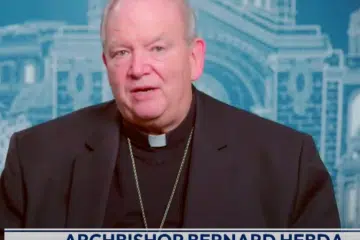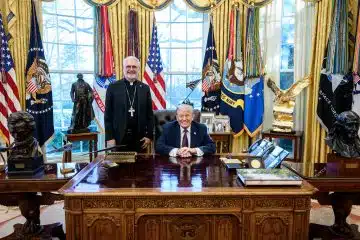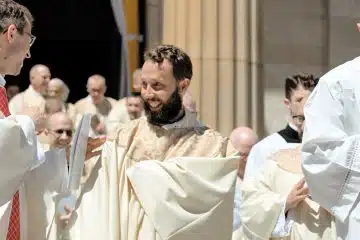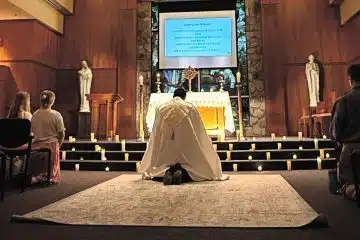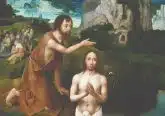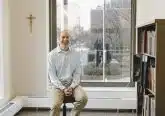Guest Column: The AIDS pandemic: What can we do?
Friday, November 27, 2009
By Father Kenneth Overberg, SJ
Despite the fact that the epidemic is spreading faster than previously thought, there has been a sharp decline in public concern regarding HIV and AIDS. World AIDS Day, Dec. 1, provides us an opportunity for renewed awareness and action.
Recent U.N. reports do offer some hope. Global initiatives, including the President’s Emergency Plan for AIDS Relief, are providing antiretroviral medications to millions of infected persons. Still, for every two people treated, almost five more become infected.
Harsh realities — millions infected or already deceased, staggering suffering, economic structures that along with war and oppression of women promote the spread of HIV — demand attention but may also lead many of us to wonder what individuals or small groups can do.
We find wise guidance in the biblical tradition and a contemporary expression of it, the consistent ethic of life, that suggest a three-part process for caring for one another: lament, act, discern links. Because the epidemic causes intense suffering, the first part of responding in lament. In his book Engaging the Powers, Scripture scholar Walter Wink expresses his conviction that humans must not try to bear suffering by themselves but to express their pain to God: “Only the heart at the center of the universe can endure such a weight of suffering.”
Lament renews and deepens our relationship with God, as shown in the Psalms. Lament is also necessary for life in society, raising questions of power and calling for change in unjust situations. Lament is an appropriately human and a profoundly religious response to HIV and AIDS.
Lament inspires action. The second part of responding to the challenge and suffering found in the pandemic requires realism and honesty. We need to be realistic in what we can do; we need to be honest in what we ought to do. Again, Wink offers some helpful advice, urging us “to seek the specific shape of our own divine calling in the day-to-day working out of our relationship with God.”
Cardinal Joseph Bernardin expressed a similar insight in his take on the consistent ethic of life. He affirmed that no individual or group can pursue all issues, but they can do something. We are called not to do everything but only what God asks of us. Possibilities range from the short-term to the lifelong, including volunteering, advocacy, medicine and education.
We also need to he honest as we confront the many ethical issues raised by HIV and AIDS as we ask, what ought we to do? This honesty will lead us to do the hard homework of examining our conscience. Here, Cardinal Bernardin counsels us to remember that we encounter an “objective, albeit imperfectly perceived moral order.”
The second part of our response to the many issues of the pandemic, then, is action rooted in realism and honesty, or using other words, vocation and conscience.
The third and final part is discerning links. Even as we focus on a particular problem, we desire to be aware of the relatedness of all life. The consistent ethic of life urges us to appreciate especially the complex, interwoven nature of the structural issues. The vicious cycles of unjust economic policies, war, poverty and oppression of women contribute to the spread of HIV and cause dehumanization and death. Understanding these links is as important as it is challenging, leading perhaps to another cycle of lament and action.
God entrusts us to one another, as the prophets and Jesus boldly proclaim. In the midst of apathy, suffering, discrimination and other ethical dilemmas, we can still find energy, solidarity, insight and hope. As we confront the AIDS pandemic, we lament, act and discern links. In business practices and medical clinics, in schools and policy-making, in a parish AIDS ministry, and in an extraordinary variety of other ways, we can embrace and express our unique form of caring for one another.
“Live a life worthy of the calling you have received” (Ephesians 4:1). How is God calling you to respond?
Jesuit Father Ken Overberg is an author and a professor of theology at Xavier University in Cincinnati.


